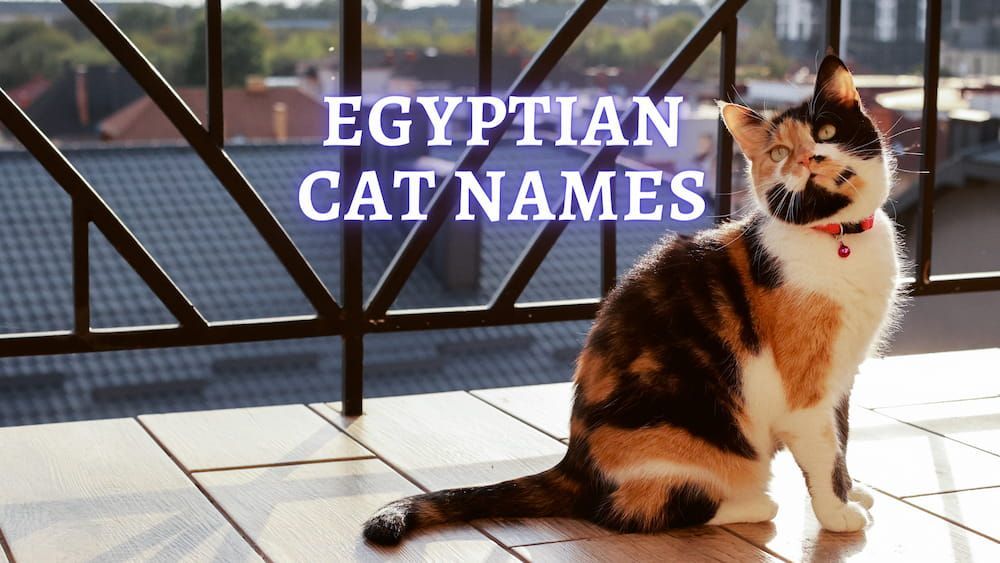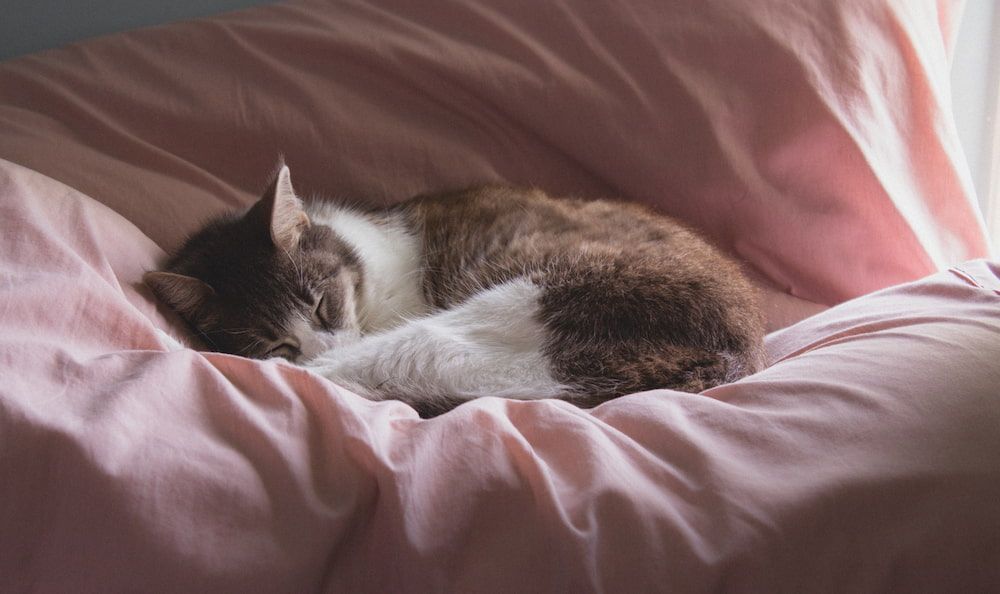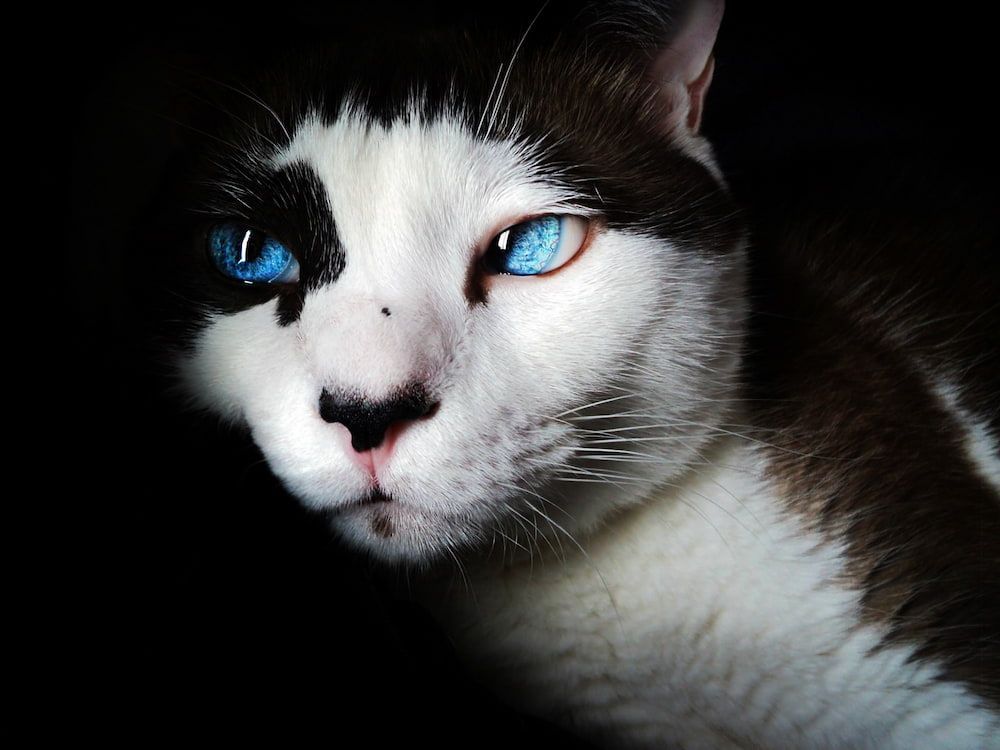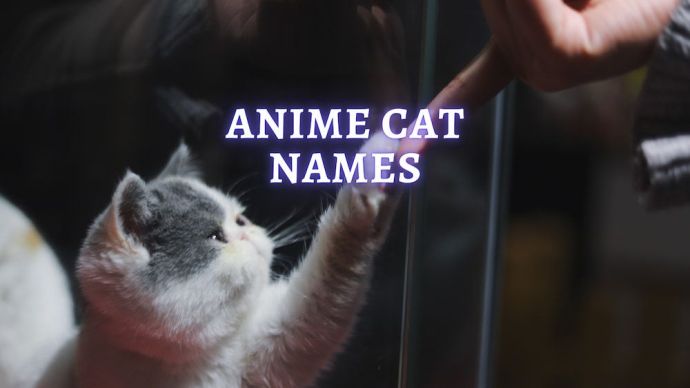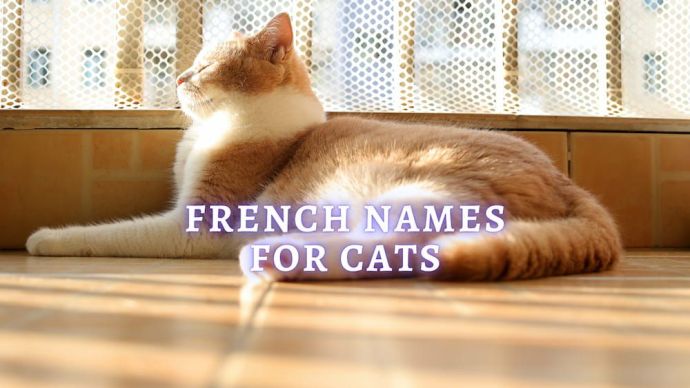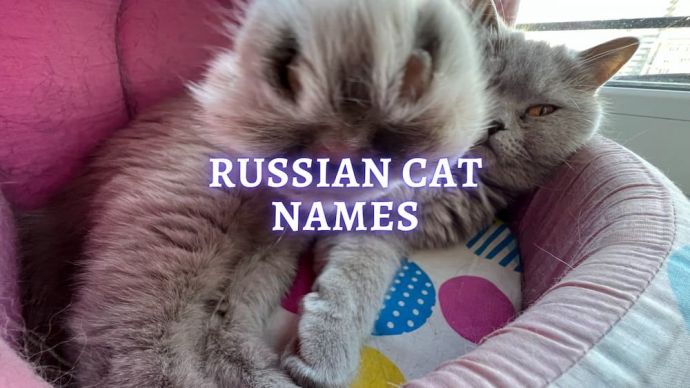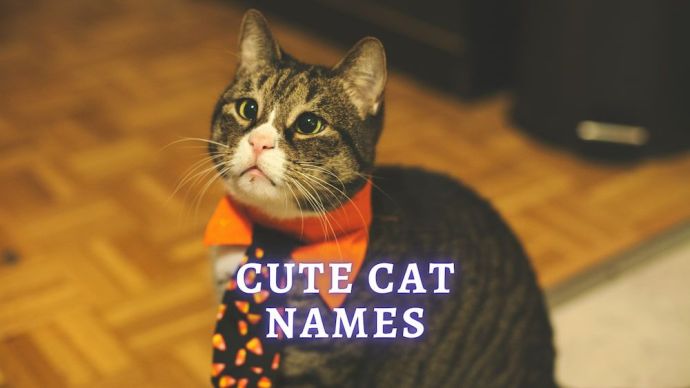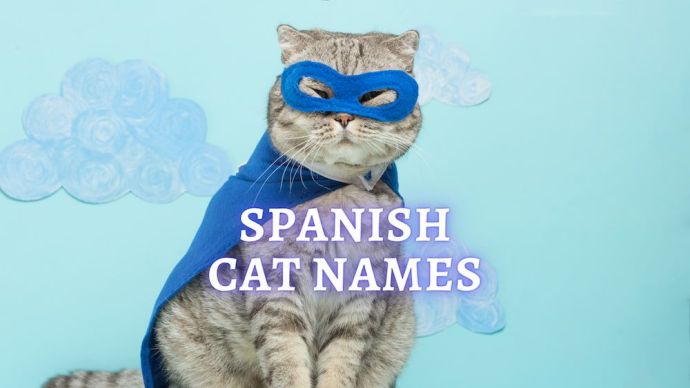Egyptian Cat Names: 70 Exotic Egyptian Cat Names
Written by:
Author: Vicki Smirnova
Vicki Smirnova is a professional writer and editor who adores animals and helps readers get along well with their pets. She has been working in digital media for more than 5 years and has great experience writing content about lifestyle, including pets. Vicki specializes in dog health and nutrition, cat feeding, dog training. She is an aquarium lover and is passionate to write about fish care at home. Also, Vicki headed several websites and worked as a news editor.
View all 245 articlesLearn about our editorial process and veterinary review board.
Viewed: 278
Updated on: 05/10/2022
The ancient Egyptians treated all animals with respect and even endowed them with supernatural abilities. Cats occupied a special place in the Egyptian animal cult.
Ancient Egypt was a predominantly agricultural state, so the Egyptians had to regularly deal with rodents and snakes that threatened the integrity of crops and the safety of people. Farmers noticed that wild cats happily feasted on all sorts of pests; therefore, people tried to lure cats into their fields by using fish and other goodies.
Near human habitation, these animals had a constant food source and protection from large predators. It is known that the ancient Egyptians even went hunting with cats, which do an excellent job with catching small game. The Egyptians revered cats as playful and affectionate companions, as well as incredibly intelligent and agile predators.
The Egyptian name for cats, “miu” (“mjw” for masculine and “mjwt” for feminine) referred to both wild and domesticated animals. In ancient Egypt, there was no tradition of giving pets individual nicknames. The Guinness Book of Records lists the first cat to receive a personal name [during the reign of Pharaoh Thutmose III (1479-1425 BC)] – Nedjem, which translates to “sweet” or “nice.” The word “mjwt” – “kitty” – was customary to call little girls. Cats played a significant role in the interpretation of the dreams of the ancient Egyptians; according to old beliefs, meeting a pet in a dream foreshadowed a great harvest for the sleeper.
The real cult of cats began in the X century BC. e. with the flowering of worship of the goddess of fertility and the sun Bast. This goddess was depicted with the head of a lioness or a cat, and four kittens frolicked at her feet. With the beginning of a new cult of cats, they began to be considered sacred. Wealthy families appointed special ministers to care for them and this position was quite respected and inherited. [1]
In addition to Bast, the ancient Egyptians identified cats with other deities. The goddess of hunting and war, Neith, periodically took the form of a cat, and the sun god, Ra, turned into the Great Mau, a red cat that struck the snake Apep, who personified darkness, evil and chaos.
If you also consider your pet a divine being, look through the Egyptian nicknames for cats and choose the right one. These are the best names for pets of the Sphynx breed. An ordinary domestic pet can also be given a sophisticated name that comes from an ancient civilization. But boys and girls cannot be the same – male and female names are significantly different from each other.
Egyptian God: Cat Names in Ancient Egypt
In ancient Egypt, many goddesses were represented as cats and had Egyptian cat names. Some of the egyptian goddess names of Egypt are listed below:
- Auset – the personification of a woman with motherly love, with open arms.
- Bastret – Egyptian cat-goddess; is considered the personification of the household and fertility.
- Anukis – means “goddess of the Nile.”
- Hehet – means “Goddess of the immeasurable.”
- Hathor – “House of Horus.” Goddess of love, fertility and sky. The name for a pet can be shortened to Hattie.
- Heqet – means assistant to women in childbirth.
- Isis was the goddess of magic and life and the protector of children and women. It was believed that she could also heal the sick.
- Keket – mythical egyptian god of darkness.
- Kosey – means “lion.”
- Maat is the mythical goddess of justice and order.
- Mut – means “mother.” An old woman among the goddesses.
- Menhit – means “Goddess of War.”
- Mekal is a ferocious devourer. The name is suitable for an angry and ferocious pet.
- Mafdet – Goddess who kills snakes.
- Naunet is the mythical goddess of the ocean.
- Nephthys is the mistress of the house. The goddess is also associated with air, death and mourning.
- Nekhbet is a mythical vulture goddess.
- Net – in ancient Egypt, this famous egyptian queen was considered the main creator.
- Niut is the mythical egyptian goddess of nothingness.
- Nut – means “vault of heaven.” Goddess of astronomy, owner of the stars, sky and universe.
- Paket – egyptian word that means “scratching.”
- Uadjit – mythical cobra goddess.
- Sekhmet – means “power.” Goddess of war. Defeated and destroyed the enemies of the sun god Ra.
- Tauret – goddess of pregnant women.
- Serq is the goddess of fertility and magic.
READ MORE: How to know Cats are Playing or Fighting?
Cat Names Inspired By Famous Egyptian Landmarks
Since cats have a special place in Egyptian culture, many of them are named after local landmarks. The following are the names of some Egyptian cats that represent the culture, civilization and geography of Egypt.
- Abydos – a place of temples and ruins (and one of the oldest places in ancient Egypt).
- Cairo – (Arabic) means “victorious.” The pet name Cairo, known as the modern capital of Egypt, speaks of belonging to the owner.
- Damietta – means “land of the lake.” Port city in the Nile Delta.
- Dendera – (Arabic origin) meaning “small town.” It is a small city located on the western bank of the Nile Delta where there is a temple complex of ancient Egypt.
- Delta – (a word of Greek origin) means “several branches of the river.”
- Giza – means “the plateau on which the pyramids are located.” A direct reminder of the Egyptian heritage. The name perfectly combines the pet with culture.
- Gezira – In the Nile Delta, there is an island called Gezira.
- Luxor – This is a city in Southern Egypt. A very beautiful Egyptian name for a cat.
- The Nile – means “champion.” The Nile is the longest river on the planet.
- Nubia – means “gold.” Nubia is a place in Egypt and, therefore, is well suited for the Egyptian cat.
- Rosetta – “little rose.” You can name your pet with this cute name, after the Egyptian port city of Rosetta.
- Ramesseum – means “born of Ra.” An Egyptian memorial temple built for the Egyptian pharaoh Ramesses.
- Sinai – (biblical origin) in reference to the “sacred mountain.” Sinai is a peninsula in Egypt. Mount Sinai is also located there.
Male Egyptian Cat Names
Names in ancient Egypt were chosen traditionally. The name reflected the person’s family, personality traits, deity traits, birth order, religious devotion and other aspects of his life. Many names were long enough that they were shortened to nicknames; for example, the name “Tutankhamun” was shortened to “Tut.” This ancient Egyptian boy cat names list suggests names based on lineage, appearance or temperament.
- Akil – smart. Good name for an intelligent cat.
- Nephi – good son.
- Khalid – immortal.
- Mshai – wanderer. A good Egyptian option for the cat you are traveling with.
- Ammon – mystery. Good nickname for your silent pet.
- Mkhai – fighter.
- Asim – protector.
- Kahotep – peaceful.
- Husani – handsome boy.
- Jabari – bold. The perfect name for your brave protector.
- Kamuzu is a healer.
- Masud – luck.
- Nomti – strong.
- Masudi – cheerful. Cool name for a funny cat.
- Nkosi – law.
- Shakir – grateful.
- Sefu – sword.
Female Egyptian Cat Names
The following list of female Egyptian cat names is an excellent source if you want to name your cat after her color, markings or unique nature. Egypt, unlike many other ancient civilizations, had women who were just as powerful (if not more) than men. This is one of the features of the ancient civilization that attracts many to the study of the ancient Egyptians. Each of these native Egyptian names is listed, along with its meaning.
- Aya – magical angel.
- Aziza – precious.
- Aisha – peaceful.
- Feme – love.
- Lapis – blue gemstone.
- Chione – daughter of the Nile.
- Heba – generous gift.
- Monifa – lucky.
- Mandisa – cute.
- Nenet – divine.
- Jomana – noble.
- Salma – world.
- Safiya – pure.
- Shani – great.
READ MORE: Cat Names Ideas With Parisian Flair
Egyptian Cat Name Fun Facts
Research shows that domestic Egyptian cats are descended from a Middle Eastern wildcat about 10,000 years old. Probably the ancient Egyptians tamed this wild cat.
Archaeologists have unearthed a 9,500-year-old burial site in the Cyrus Republic (an area formerly under Egyptian rule) that contained a human mummy and a cat mummy. It is assumed that this pet lived with a human as a companion. In fact, in ancient Egypt, cats were often mummified. The embalmers put as much effort into preparing them for burial as did members of the royal family.
The Egyptian May cat is a modern representative of the cat of Egypt. The word “mau” in translation from Egyptian means “cat.”
The first depiction of an Egyptian domestic pet in Egypt is on a tomb that dates back to 1950 BC.
When a beloved house pet died, the ancient Egyptians shaved their eyebrows as a sign of mourning. The mourning period was considered over when their eyebrows regrew. The death of a domestic pet was considered a truly sad event.
READ MORE: Why Does My Cat Stare At Me?
Conclusion
We hope this great list of Egyptian cat names has helped you find the name that best suits your new feline friend! Giving a pet an Egyptian name is a great way to honor the history of the origin and domestication of wild cats and give your kitten a truly unique name.
Article Sources:
- Etymological Dictionary of Egyptian. Vol. 3. Leiden, Boston: Brill. Takács, G. (2008). “mjw”.
 Cat Care Why Does My Cat Attack My Legs? 10 Reasons Why and What To Do About It (Vet-Approved Advice)
Cat Care Why Does My Cat Attack My Legs? 10 Reasons Why and What To Do About It (Vet-Approved Advice) - 45087
- 21
 Cat Veterinary Tips Cat Stomach Gurgling: Vet Advice on Why is Your Cat Stomach Gurgling?
Cat Veterinary Tips Cat Stomach Gurgling: Vet Advice on Why is Your Cat Stomach Gurgling? - 33736
- 4
 Cat Veterinary Tips My Cat Lost its Voice: Can Cats get Laryngitis? (Vet Advice)
Cat Veterinary Tips My Cat Lost its Voice: Can Cats get Laryngitis? (Vet Advice) - 22891
- 13









